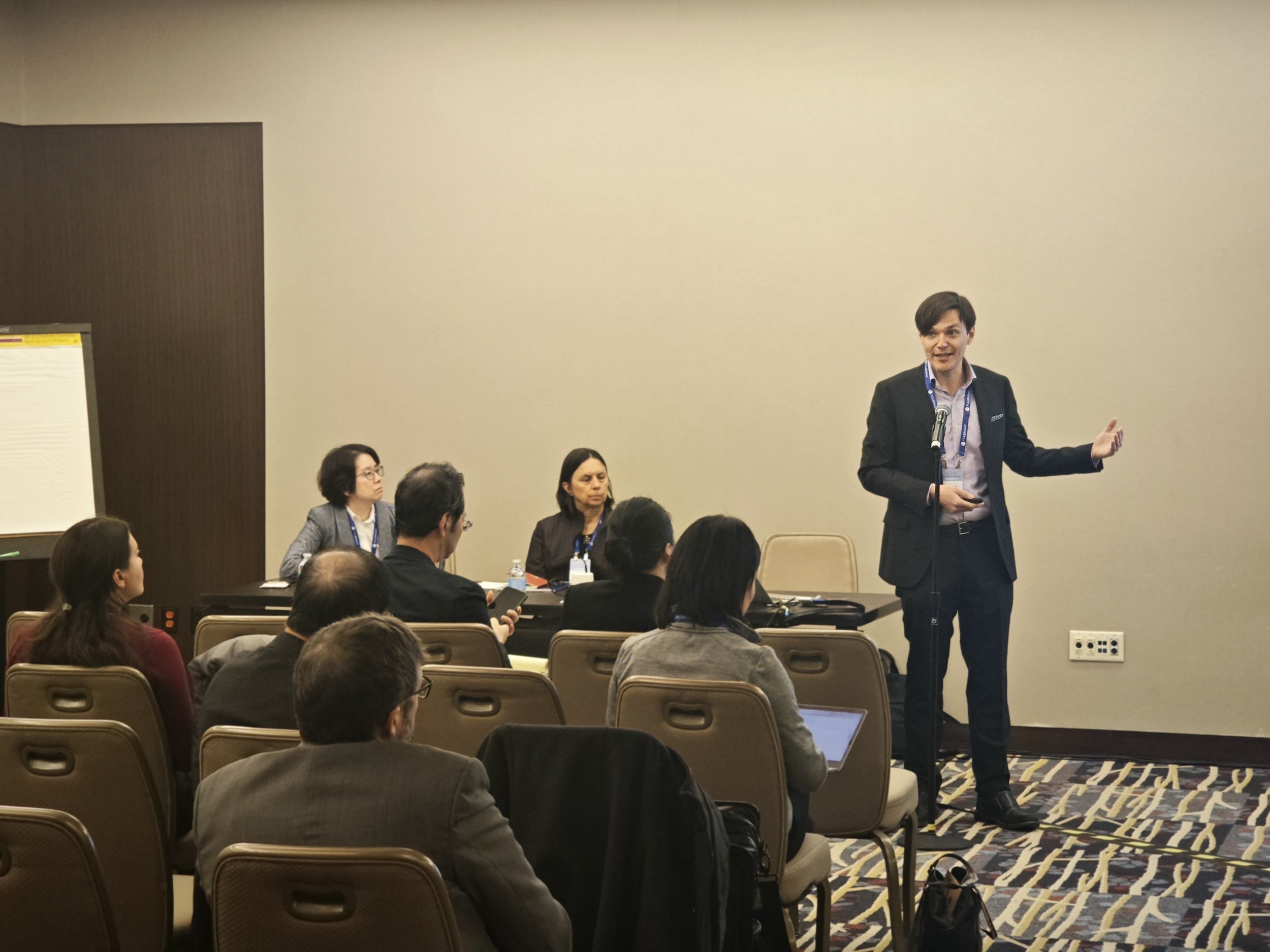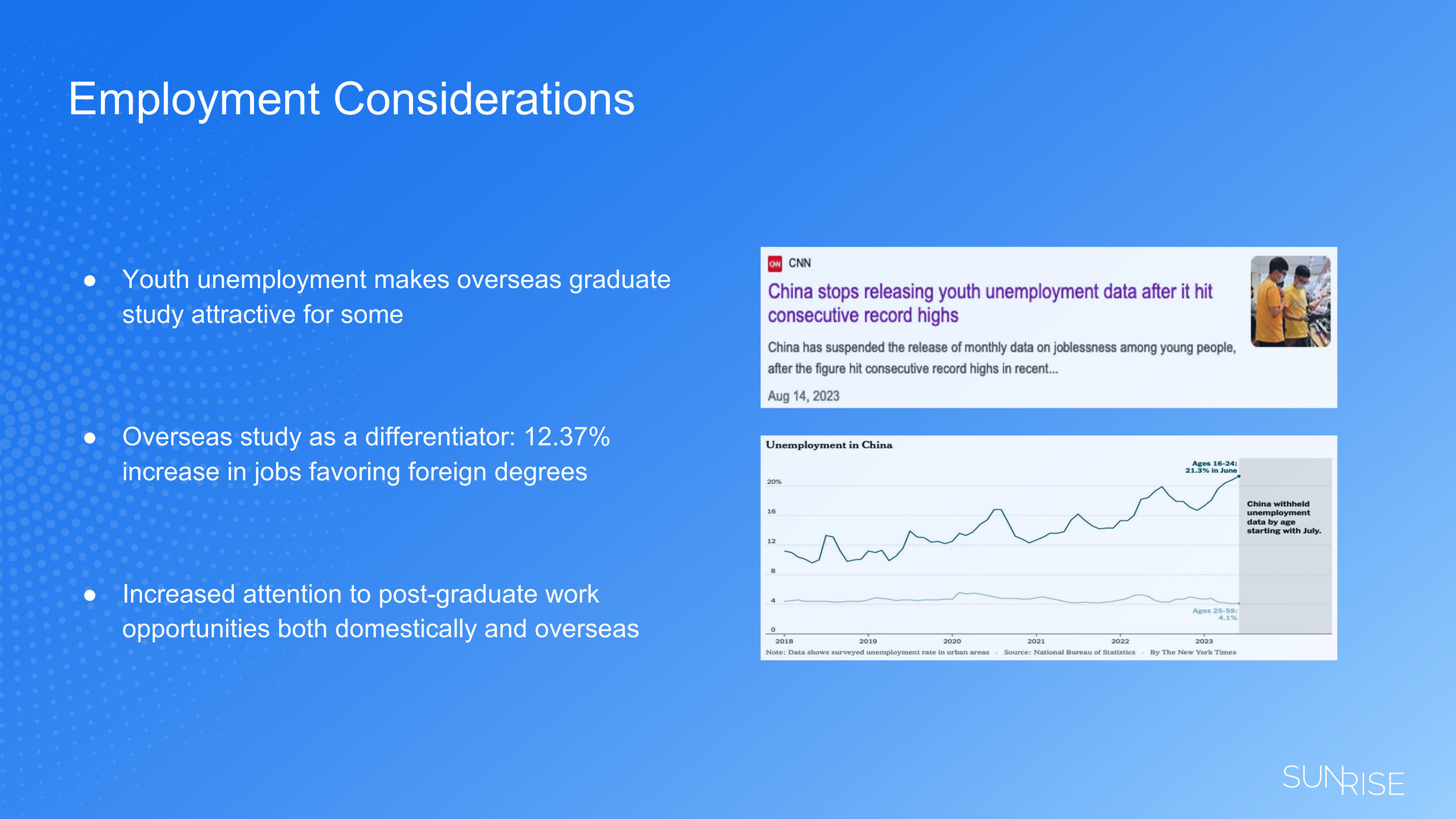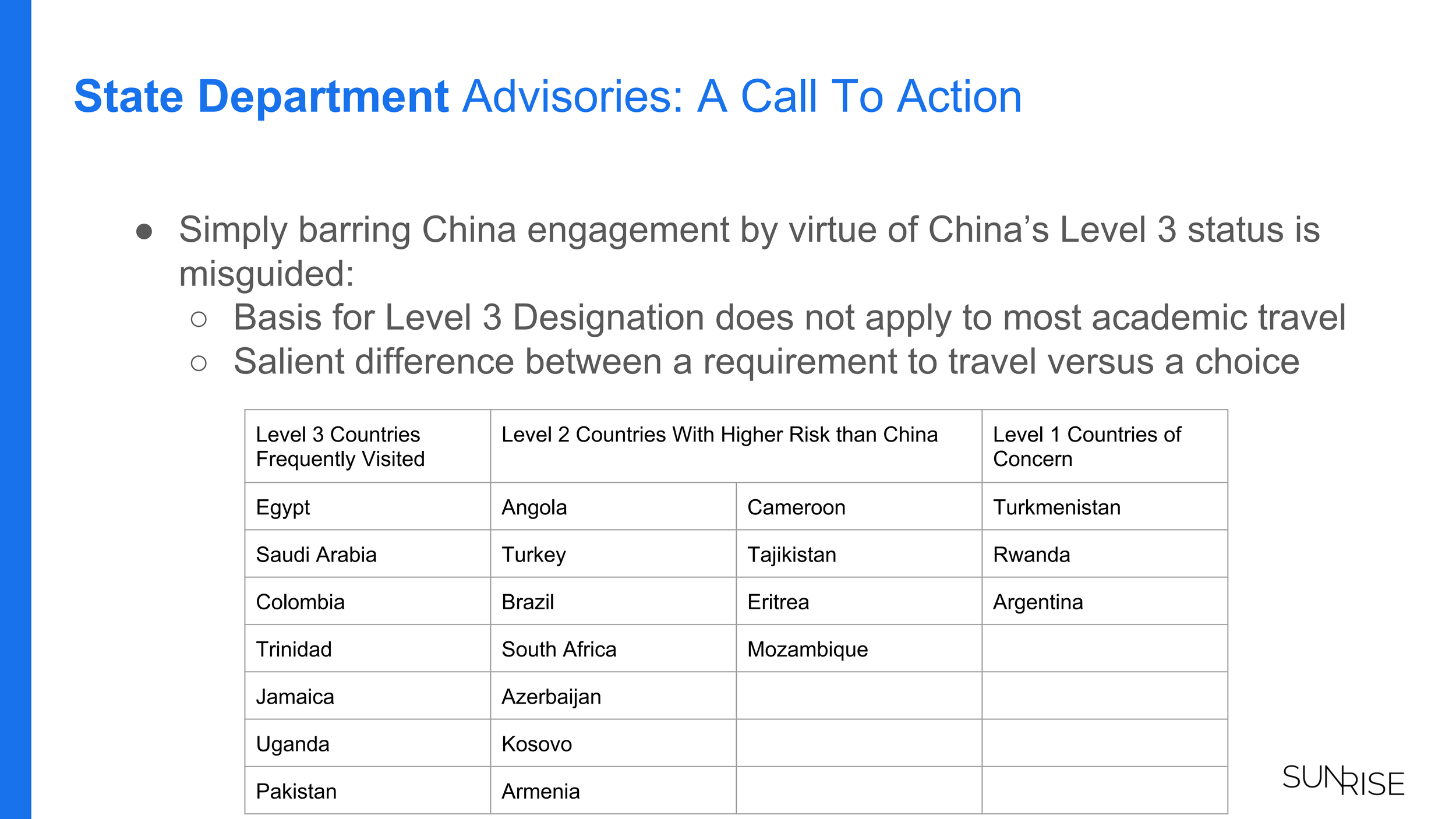Highlights from China Recruitment and Mobility Session at AIEA 2024
On February 21, Sunrise International COO David Weeks co-presented the session “Frameworks for Restarting and Reinvigorating US-China Education Exchanges” at the Association of International Education Administrators (AIEA) Annual Conference in Washington, DC. The session was co-presented with Madame Xuesong Shen, the Minister Counselor of Education of the Embassy of the People's Republic of China in the USA, and Dr. Julie Whitlow, Vice Provost for Faculty and Global Engagement at Salem State University. This piece summarizes the highlights of the session.
Weeks: The State of Mobility for Chinese International Students
Following the end of COVID restrictions on passport and re-entry into China, Chinese enrollments in the US, UK, Canada, and Australia have either remained steady or increased in 2023.
Visa issuance to Chinese students to the US, UK, Canada, and Australia was significantly higher in 2023 than in 2022, suggesting that enrollments will increase in 2024. The US saw a 54.86% year on year increase in visa issuance from Q1-Q3 of 2023, while Australia, Canada, and the UK saw 50.3%, 13.24%, and 4.74% increases in visa issuance, respectively, over the same period.
A survey of 1,855 students attending Sunrise’s undergraduate recruitment tours showed that the effects of the pandemic on study overseas planning have subsided, with 75.27% saying they remained committed to studying overseas, and another 15.76% saying that they planned to pivot from studying inside China to studying abroad, a welcome reversal from the mid-pandemic trend.
China remains an irreplaceable market. In the US, the number of Chinese graduate students increased by 8% and non-degree students increased 29% last year. On the undergraduate level, China remains the largest sending country of international students to the US, and accounts for more undergraduate students than the next 6 countries combined. This is driven by the size of China’s upper and upper-middle class, which is 14 times larger than that of India.
International schools will grow, but at a slower pace: Despite strict regulations on private schools, 21 new international schools opened in China in 2023, up from 17 in 2022.
Universities are increasingly returning to in-person recruitment events in China. Digital platforms have grown in popularity as information sources for study overseas, particularly short-form video platforms like Douyin.
Shen: Updates from the Chinese Embassy
China is home to 3,013 HEIs, up from 1,813 in 2000 with a gross enrollment rate of 59.6%.
There is a need to restore the flow of US students studying in China to facilitate mutual understanding between the two countries. During President Xi’s meeting with President Biden in November 2023, Xi announced that China is ready to invite 50,000 young Americans to study in China in the next 5 years.
To achieve this goal, China will establish the YES (Young Envoys Scholarship) Program which will support 500 high-quality programs for US students to come to China for summer schools on different disciplines, winter camps, cultural and sport exchanges, conferences and internship, credit/non-credit bearing courses, long-term/short term, mainly offered by Chinese universities, as well as organizations and associations. Those interested may contact YES@ceaie.edu.cn.
The ASSCI ( American Short-term Study in China Initiative) remains a useful tool for US universities to access short term exchanges in China, and the Global Research Immersion Program for Young Scientists (GRIPS) will be hosted in summer 2024, allowing international students to work in research labs at 4 of China’s top universities.
The China Pavilion at NAFSA will be robust, with 70 representatives from 33 Chinese institutions, and the CACIE conference in Beijing will take place from October 31-Nov 2, 2024 in Beijing.
Whitlow: The Experience of Traveling to China Twice in 2023, and What Questions Chinese SIOs Have for Their US Counterparts
There is a growing need for workforce development and opportunities for hands-on work experience to be built into the US undergraduate experience, driven in part by the challenges of finding a job in China without a master’s degree.
It is important to create actionable pathways from undergraduate to graduate programs in the US.
Chinese SIOs continue to express a desire for faculty exchange, particularly facilitating US professors to come to teach in China.
Messaging around safety and gun violence is key: have statistics available about safety in your university community and in your city. It is also valuable to ensure that there are “dry” campus options, such as alcohol and substance-free residential options.
We saw rapid digitalization of instruction during the pandemic, but there is still a need for a digital platform that allows students, faculty, and education abroad professionals to see what opportunities are out there at various Chinese institutions, and vice versa. A platform that creates more visibility into these study opportunities would be especially useful.
Shen: Challenges Ahead
Some universities are blocking travel for staff or students because of the State Department Level 3 advisory.
There are cases of interrogations and repatriations of Chinese students at US borders. This unfairness and unpredictability should be rectified.
New laws such as those in Florida block Chinese researchers from academic labs of public universities, purely on the basis of nationality.
Weeks: A Need for a More Nuanced and Clear China Travel Policy
If a university has any limitations on travel to China, that university should have a clear, consistent, and publicly posted travel policy on its website. Ad-hoc and arbitrary blocking of faculty and staff travel or student study is counterproductive.
We call on SIOs to take a more nuanced view of travel to China, particularly for students who deserve the opportunity to study in China if they wish to do so, and for essential staff and faculty functions. Simply blocking travel by virtue of the Level 3 Advisory is misguided, because it does not take into account the low risk profile of the nature of academic travel.
There is a sense that limits on travel to China are arbitrary and that the Level 3 Advisory is being used as a pretext, because universities often recruit students in person or facilitate exchanges with other Level 3 countries such as Egypt, Saudi Arabia, Colombia, Jamaica, and Trinidad & Tobago. There are a great number of level 1 and 2 countries where safety is of greater concern than that in China such as: Mozambique, Azerbaijan, Eritrea, Tajikistan, Cameroon, and Turkmenistan. Universities would do well to restore staff, student, and faculty travel to China in the interests of effective recruitment, fairness to students, and the advancement of scholarship and international collaboration.





